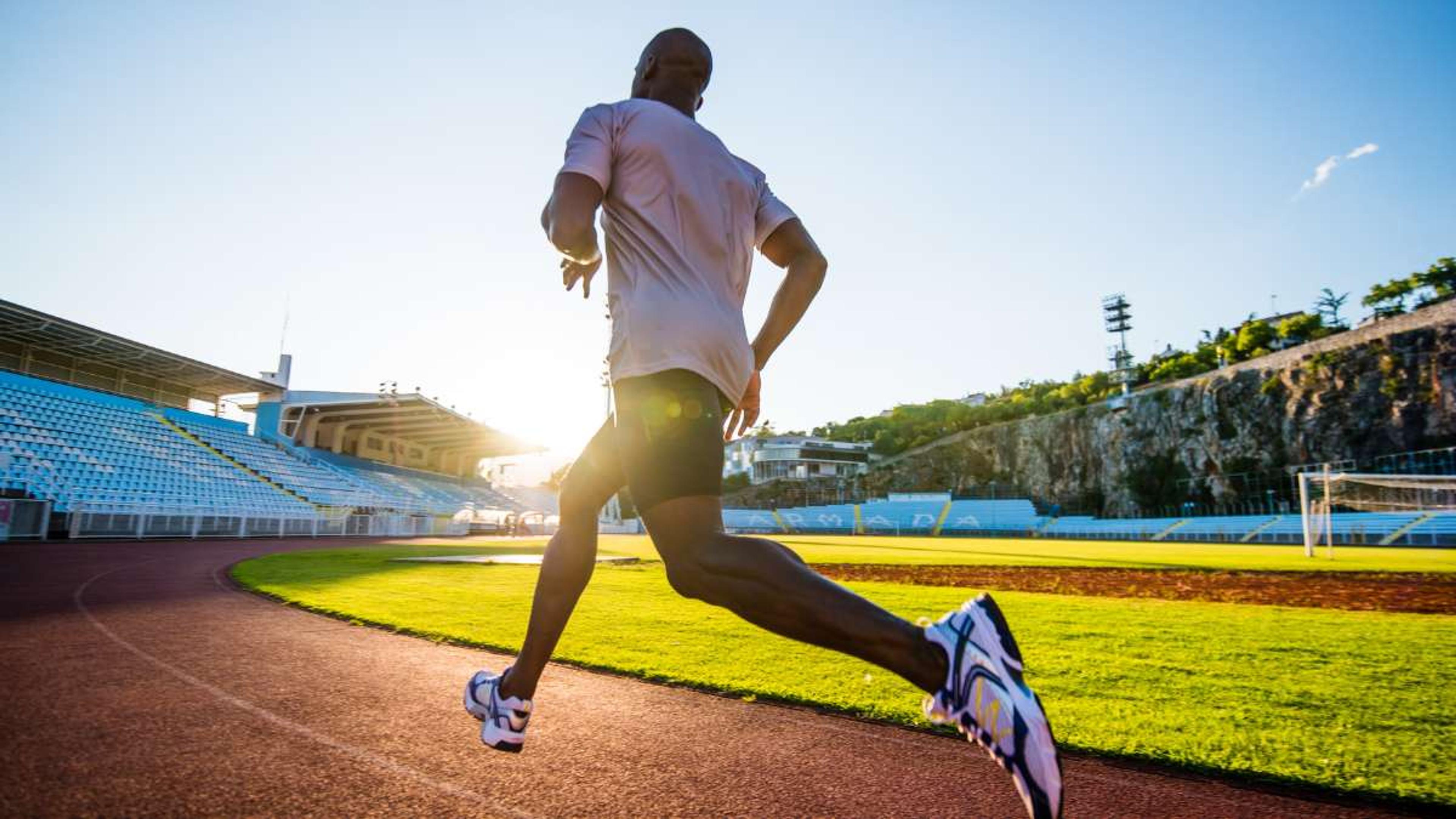Vegan Athletes vs Meat Eating Athletes: The Debate Continues

- Key Takeaways
- Benefits of a Vegan Diet for Athletes
- Considerations for Vegan Athletes
- Benefits of a Meat-Eating Diet for Athletes
- Individualized Nutrition for Athletic Performance
- Conclusion
- FAQs
Navigating through dietary choices as an athlete can often feel like a daunting task. With recent studies suggesting that vegetarian athletes outperform their meat-eating counterparts, the debate between following a plant-based diet and a meat-inclusive one intensifies.
This blog will dissect the benefits and considerations of each dietary option, providing you with comprehensive insights to fuel your athletic endeavors healthily. Ready for the full scoop? Let's dive in!
Key Takeaways
- Vegan athletes can get enough protein and essential nutrients from well-chosen plant foods alone, supporting their athletic performance.
- Careful planning is required for vegan athletes to address potential nutrient deficiencies and ensure optimal performance.
- Meat-eating athletes can benefit from animal-based protein for muscle recovery, as well as historical success in sports. However, vegetarian diets have also shown success among athletes.
- Individualized nutrition plans tailored to an athlete's specific needs and goals are crucial for optimizing athletic performance.
Benefits of a Vegan Diet for Athletes
In the ongoing debate of "Vegan Athletes vs. Meat-Eating Athletes," it's important to consider the advantages of a vegan diet for those engaged in sports and physical performance. Here are some key benefits that highlight why a vegan diet can be a valuable choice for athletes:

- Enhanced Recovery and Inflammation Reduction: A plant-based diet rich in antioxidants, found abundantly in fruits, vegetables, and whole grains, can help reduce exercise-induced inflammation. This, in turn, supports faster recovery times between training sessions and competitions.
- Improve Athletic Performance: Beans and legumes are power foods for vegan athletes. They have lots of lysine, an amino acid that is good for our bodies. Soybeans and lentils also bring us leucine, another helpful amino acid. Research shows that vegans can get enough protein from well-chosen plant foods alone. Eating a smart mix of plants gives an athlete everything needed for top health and best play times: not just protein but iron, calcium, and important vitamins too!
- Improved Cardiovascular Health: A well-balanced vegan diet that prioritizes whole grains, legumes, nuts, and seeds can contribute to heart health. Lower saturated fat intake and higher consumption of heart-healthy fats like those found in avocados and nuts can positively impact an athlete's cardiovascular system, supporting endurance and overall performance.
- Lean Muscle Mass Maintenance: Plant-based proteins from sources like beans, lentils, tofu, and quinoa provide essential amino acids for muscle repair and growth. Vegan athletes can effectively maintain lean muscle mass by carefully planning their protein intake to meet their individual needs.
- Optimal Digestion and Gut Health: The fiber-rich nature of a vegan diet promotes healthy digestion and gut microbiome diversity. Proper digestion is vital for nutrient absorption and overall energy levels, contributing to sustained athletic performance.
- Weight Management and Body Composition: Many plant-based foods are naturally lower in calorie density, allowing athletes to manage their weight and body composition effectively. This can be particularly advantageous for sports that benefit from a lean physique, such as endurance running or cycling.
- Reduced Risk of Chronic Diseases: A vegan diet has been linked to a lower risk of chronic diseases like diabetes, which can otherwise hamper an athlete's performance and recovery. Maintaining consistent blood sugar levels is crucial for sustained energy during workouts and competitions.
- Eco-Friendly Choice: Embracing a vegan diet aligns with ethical and environmental considerations. Athletes who choose plant-based eating contribute to reduced greenhouse gas emissions, land use, and water consumption, making a positive impact on the planet.
- Mental Clarity and Focus: Nutrient-dense foods like leafy greens, berries, and omega-3-rich seeds can support brain health, enhancing mental clarity, focus, and cognitive function during training and competitions.
- Ethical and Moral Alignment: Vegan athletes often appreciate the ethical alignment of their dietary choices with values of compassion and animal welfare. This sense of purpose can contribute to a positive mindset and mental resilience.
- Community and Advocacy: The growing community of vegan athletes offers a supportive network and a platform for advocating a cruelty-free lifestyle. Athletes can use their platform to inspire others and raise awareness about the benefits of plant-based eating.
Following a vegan diet exposes you to a nutrient dense diet as plant foods pack a lot of essential nutrients. Grains, legumes, fruits, and other plant foods are loaded with vitamins and nutrients. These can help to improve your health and boost athletic performance.
Don't think that vegan diets lack important things! With the right balance and planning, they can give athletes all they need. Also, these foods bring fiber into your diet. Fiber helps with digestion, blood sugar levels, weight control which are all good for athletes.
Considerations for Vegan Athletes
Vegan athletes must carefully plan their nutrition to ensure optimal performance and address potential nutrient deficiencies. They need to focus on obtaining enough protein from plant sources and ensuring adequate intake of essential amino acids.
Additionally, strategies for recovery and muscle support should be implemented to maintain overall health and athletic performance.
Nutritional planning for optimal performance
To achieve optimal performance, vegan athletes need to carefully plan their nutrition. Here are some key considerations:
- Adequate Caloric Intake: Vegan athletes should ensure they consume enough calories to meet their energy needs for training and recovery.
- Protein Sources: Plant-based protein sources such as beans, lentils, tofu, and tempeh can provide the necessary amino acids for muscle repair and growth.
- Iron-Rich Foods: Including iron-rich foods like dark leafy greens, dried fruits, nuts, and seeds can help prevent iron deficiency anemia, which can affect performance.
- Calcium Sources: Plant-based calcium sources like fortified plant milk, tofu, and leafy greens are important for bone health and muscle function.
- Vitamin B12 Supplement: Since vitamin B12 is mainly found in animal products, vegan athletes may need to take a supplement or consume fortified foods to meet their needs unless they consume sufficient fortified foods, plant-based milk, vegan protein bars, seaweed, mushrooms and nutritional yeast.
- Omega-3 Fatty Acids: Including plant-based sources of omega-3 fatty acids like flaxseeds, chia seeds, and walnuts can support heart health and reduce inflammation.
- Hydration: Staying properly hydrated with water or plant-based beverages is crucial for optimal athletic performance.
Addressing potential nutrient deficiencies
Vegan athletes need to be aware of potential nutrient deficiencies in their diet. This is because certain nutrients like vitamin B12 and calcium are mainly found in animal products.
Without careful planning, vegan athletes may not get enough of these crucial nutrients for optimal performance. To address this, they should consider taking supplements or incorporating fortified foods into their diet to make sure they're getting the necessary vitamins and minerals.
It's also important for vegan athletes to regularly monitor their nutrient levels through blood tests and consult with healthcare professionals or registered dietitians who can provide personalized guidance on meeting their nutritional needs without compromising their plant-based lifestyle.
Strategies for recovery and muscle support
To support recovery and muscle development, vegan athletes can incorporate several effective strategies into their routine. Firstly, ensuring an adequate intake of plant-based protein sources like legumes, tofu, and tempeh is crucial for rebuilding and repairing muscles.
Additionally, consuming foods rich in essential amino acids such as quinoa and buckwheat can enhance muscle recovery. Vegan athletes should also focus on nutrient timing by consuming carbohydrates and proteins within 30 minutes after exercise to optimize glycogen replenishment and muscle repair.
Lastly, incorporating anti-inflammatory foods like berries, leafy greens, and nuts into the diet can help reduce inflammation caused by intense workouts and promote faster recovery.
Benefits of a Meat-Eating Diet for Athletes
A meat-eating diet can provide athletes with animal-based protein for muscle recovery, optimal nutrient absorption and utilization, and a historical record of success among meat-eating athletes.
Read more to learn about the benefits of a meat-eating diet for athletes.

Animal-based protein and muscle recovery
Animal-based protein, found in meat, has long been associated with muscle recovery and growth in athletes. This is because meat contains all the essential amino acids that our bodies need to build and repair muscles.
These amino acids play a crucial role in muscle synthesis, helping to rebuild and strengthen muscles after intense workouts or competitions. By consuming animal-based protein, athletes can ensure they are getting an adequate amount of these essential nutrients to support their muscle recovery process.
Nutrient absorption and utilization
A vegetarian diet may have reduced nutrient absorption because the nutrients in plants are not always easy for our bodies to absorb. This means that even if you're eating a variety of plant-based foods, your body might not be able to get all the nutrients it needs.
For example, iron from plant sources is less easily absorbed than iron from animal sources. So if you're a vegan athlete, you need to be aware of this and make sure you're getting enough of these important nutrients through other sources or supplements.
In addition, some individuals may find it challenging to obtain sufficient amounts of certain nutrients on a vegetarian diet. Nutrients like vitamin B12 which is mainly found in animal products can be inadequate in a vegan diet and may require supplementation.
It's also important for vegan athletes to carefully plan their meals so they can ensure they're getting enough protein, calcium, omega-3 fatty acids, and other essential nutrients for muscle growth, bone health, and overall performance.
Historical success of meat-eating athletes
Meat-eating athletes have a long history of success in sports. Early studies have shown that meat consumption can provide advantages for athletes, such as favorable muscle protein synthesis and metabolic benefits.
In fact, historical studies have even found that vegetarian athletes may have greater endurance and outlast their meat-eating counterparts. However, it is important to note that vegans have also achieved sporting success at professional levels and broken records.
Transitioning to a vegan lifestyle has allowed some athletes to improve their diet and be more conscious of their food choices, showing that there are different paths to achieving athletic greatness.
Individualized Nutrition for Athletic Performance
Athletes' performance can be greatly influenced by their nutrition, so it is crucial to have personalized nutrition plans tailored to their specific needs and goals. Consulting with dietitians and experts can help athletes create a plan that optimizes their performance and supports their overall health.
Flexibility in dietary choices based on individual goals allows athletes to find the best approach for their athletic endeavors.
Psychological Impact on Athlete Performance
The psychological impact of individualized nutrition on athlete performance is crucial. Athletes need personalized nutrition plans that consider their specific goals and dietary preferences.
This includes vegan athletes, who may face unique challenges in meeting their nutritional needs. The psychological impact of adopting a vegan diet, such as concerns about getting enough Vitamin B12 or potential nutrient deficiencies, can affect an athlete's confidence and focus on the field.
It is essential for athletes to work with experts like dietitians to ensure they have the right support and guidance to optimize their performance both physically and mentally. By addressing the psychological aspect of individualized nutrition, athletes can thrive in their chosen sport and achieve their full potential.
The importance of personalized nutrition plans
Personalized nutrition plans are important for athletes because they aim to optimize their health, body composition, and exercise performance. These plans take into account an individual athlete's specific needs and goals, such as their sport, training intensity, body type, and any dietary restrictions or preferences they may have.
By tailoring the nutrition plan to each athlete's unique requirements, it can help ensure that they are getting the right balance of nutrients to support their athletic performance.
This includes considerations for macronutrients like carbohydrates, protein, and fats, as well as micronutrients like vitamins and minerals. Personalized nutrition plans also take into account factors like timing of meals and snacks around training sessions or competitions to maximize energy levels and recovery.
By working with dietitians or experts who specialize in sports nutrition, athletes can receive guidance on how to fuel their bodies effectively for optimal performance on an individual level.
Consulting with dietitians and experts
Consulting with dietitians and experts is crucial for vegetarian athletes to ensure they are getting all the necessary nutrients to support their endurance and muscle strength. These professionals can provide practical advice on meal planning, supplementation, and optimizing performance through personalized nutrition plans.
By seeking guidance from these experts, athletes can feel confident in their dietary choices and have peace of mind knowing they are fueling their bodies appropriately for optimal athletic performance.
Flexibility in dietary choices based on goals
Athletes have different goals when it comes to their diet. Some may choose a vegan or vegetarian diet for ethical or environmental reasons, while others may prefer a meat-based diet for specific nutritional needs.
The key is to have flexibility in dietary choices based on individual goals. Athletes should consult with experts and create personalized nutrition plans that meet their specific needs and preferences.
This way, they can optimize their performance and achieve their desired outcomes without compromising on their values or nutritional requirements.
Conclusion
In conclusion, the debate between vegan athletes and meat eating athletes continues. While there are benefits to both diets, with plant-based diets providing nutrient density and ethical considerations, meat-eating diets offering animal-based protein for muscle recovery, it's important to note that individualized nutrition plans play a crucial role in athletic performance.
Consulting with experts and finding a balance that works best for each athlete's goals is key. So whether you choose plants or meat, proper nutrition is the ultimate champion for athletic success.
FAQs
1. Can vegan athletes perform as well as meat eating athletes?
Yes, vegan athletes can perform just as well as meat eating athletes. A balanced plant-based diet can provide all the necessary nutrients for athletic performance.
2. What are the benefits of a vegan diet for athletes?
A vegan diet can provide numerous benefits for athletes, including improved cardiovascular health, better digestion, and reduced inflammation. It can also help maintain a healthy weight and promote muscle recovery.
3. Do vegan athletes need to take supplements?
While it is possible to meet nutrient needs through a well-planned vegan diet, some vegan athletes may choose to take supplements such as vitamin B12 or iron to ensure they are meeting their requirements.
4. Are there any challenges that come with being a vegan athlete?
Some challenges that may arise for vegan athletes include ensuring adequate protein intake and finding suitable food options while traveling or dining out. However, with proper planning and knowledge, these challenges can be overcome effectively.

